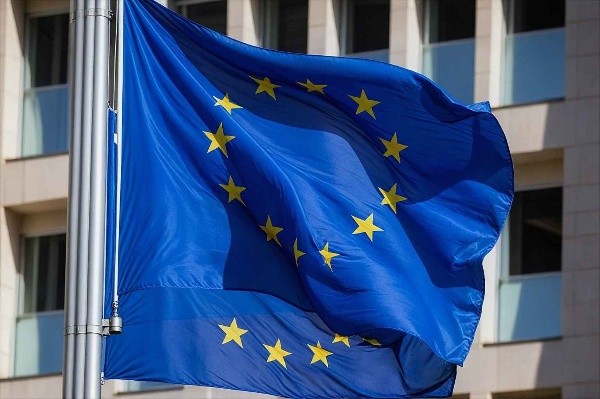Iran’s Plan to Strike Back Against the U.S.
Iran’s Military Preparations Following U.S. Attacks
Loading...

European Council says 14 individuals and entities subject to asset freeze and travel ban.
Overview of the Sanctions
The European Union (EU) has taken decisive action against Iran by imposing sanctions on 14 individuals and entities, including the Iranian Deputy Defence Minister and the national airline, Iran Air. This move comes in response to allegations that Iran has been supplying missiles and drones to Russia for use in its ongoing conflict in Ukraine. The European Council announced these sanctions on Monday, highlighting the EU's commitment to holding accountable those involved in military support for Russia's war efforts.
Details of the Sanctions
The sanctions specifically target seven individuals and seven entities linked to the transfer of weapons and military equipment to Moscow. Among those sanctioned is Seyed Hamzeh Ghalandari, Iran's Deputy Defence Minister, along with high-ranking officials from the Islamic Revolutionary Guard Corps’ Quds Force. The sanctions also extend to three Iranian airlines, including Iran Air, which are believed to be involved in facilitating these transfers.
European Commission President Ursula von der Leyen expressed strong support for the sanctions, stating, “The Iranian regime’s support to Russia’s war of aggression against Ukraine is unacceptable and must stop.” She emphasized the need for further actions to address the situation.
Reactions to the Sanctions
Ukrainian Foreign Minister Andrii Sybiha welcomed the EU's decision, asserting that those who support aggression must be held accountable. He echoed the sentiment that the sanctions are a necessary step in ensuring that nations involved in military support for Russia face consequences for their actions.
In contrast, the Iranian government has vehemently denied the allegations of supplying missiles to Russia. Esmail Baghaei, a spokesman for the Iranian Ministry of Foreign Affairs, condemned the sanctions as violations of international law, asserting that claims of Iranian military intervention in the conflict are unfounded.
Context of the Sanctions
These sanctions follow recent intelligence reports from the United States indicating that Iran has indeed supplied ballistic missiles to Russia for use in Ukraine. Iranian President Masoud Pezeshkian has denied any recent transfers of weapons to Russia, although he acknowledged the possibility of past deliveries.
The EU's actions come amid a broader context of military and economic support provided to Ukraine by EU member states, totaling approximately 118 billion euros ($129 billion) since Russia's full-scale invasion began in February 2022. Notably, Hungary has been the only EU member country not to participate in this support.
Implications of the Sanctions
The imposition of these sanctions marks a significant escalation in the EU's response to Iran's alleged military support for Russia. By targeting key individuals and organizations, the EU aims to disrupt the supply chain of military resources that could further enable Russia's aggression in Ukraine. The sanctions also reflect a growing consensus among Western nations regarding the need to counteract Iran's influence in the region and its role in the conflict.
As tensions continue to rise, the international community will be closely monitoring the situation to assess the effectiveness of these sanctions and the potential for further actions against Iran. The EU's commitment to holding accountable those who support military aggression underscores the ongoing geopolitical complexities surrounding the conflict in Ukraine and the broader implications for regional stability.
Editor
Iran’s Military Preparations Following U.S. Attacks
Troops remain in five strategic locations, raising fears of renewed tensions and long-term occupation.
Opposition forces have taken control of the capital after a significant offensive. Here is how it unravelled.
